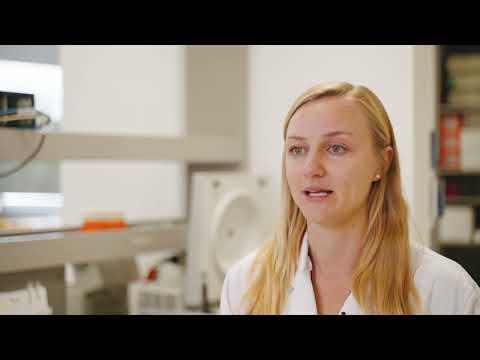Sian Genoud
Investigating mechanisms of abnormal tau uptake and release in glia

Award
Dementia Research Community Project Grant
Status
In progress
Start Date
8 April 2024
About the project
Dementia has generally been considered as a disease of neurons. Increasing evidence, however, has identified that non-neuronal brain cells called glia actively contribute to disease progression by internalising and secreting a toxic protein, tau. Tau can then be taken up by, and damage neighbouring healthy cells by undetermined mechanisms. Dr Genoud aims to understand the role of glia in tau spread by investigating whether components of the neuronal scaffolding system called the actin-cytoskeleton, are involved in abnormal tau uptake and release. Dr Genoud will use cell models with combinations of neurons, astrocytes and microglia and alter the expression of various actin-cytoskeleton proteins using genetic manipulation and observe how these changes affect the uptake and release of tau using cellular assays, microfluidics and high-resolution microscopes.
This project will provide significant understanding regarding the role of glia in tau-related dementia pathology and identify novel drug targets for the development of disease-modifying therapies to slow or halt dementia pathology. The team predict that blocking the spread of abnormal tau uptake in the brain through these pathways will help alleviate symptoms experienced by people living with dementia and ultimately slow the underlying progression of disease in the brain.

Where are they now?
Dr. Genoud is a postdoctoral research fellow at the Dementia Research Centre within the Macquarie Medical School. She has a background in neuropathology and expertise in using cellular models to understand molecular mechanisms of cell death in neurodegenerative diseases.
